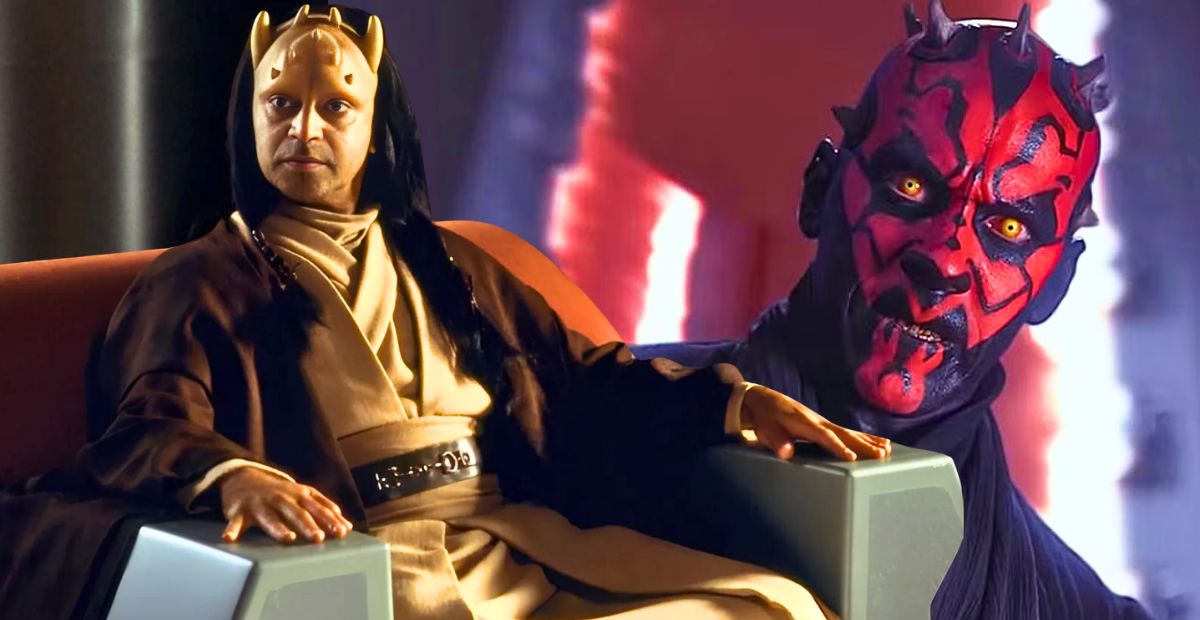“So, why are there two types of Zabraks?” Someone asked this recently, and I couldn’t help but dive into it.
We’ve got Darth Maul and his tattooed, fierce look on one hand, and Jedi like Eeth Koth, who look almost nothing like him on the other.
It’s a fair question: how do two Zabraks from the same species end up looking so different? There’s a whole story behind it, so let’s break down what makes each unique.
Two Types of Zabraks? Here’s the Story
Zabraks are a species of fierce, horned warriors from two distinct planets – Dathomir and Iridonia.
The Dathomirian Zabraks (like Maul and Savage Opress) and Iridonian Zabraks (like Eeth Koth) come from very different backgrounds, and those differences in environment and culture have given them distinct traits.
- Iridonians: These Zabraks are from Iridonia, a rough planet that’s made them tough and resilient. Think of them as the “do-it-yourself” type, often traveling the galaxy as bounty hunters, mercenaries, or even Jedi.
- Dathomirians: These guys settled on Dathomir and got caught up in a whole world of dark-side magic. The male Dathomirians, known as Nightbrothers, live under the rule of the Nightsisters, a powerful group of witches who wield some serious magick.
Alright, now you get their basic backgrounds, let’s get into the big reasons why these two types of Zabraks are so different.
1. Different Planets, Different Vibes
The first big reason for their differences is pretty straightforward: they grew up on different planets. Iridonia is known for its harsh environment.
Living there turned the Iridonian Zabraks into a tough bunch. They’re all about independence, survival, and doing things their own way.
When you meet an Iridonian Zabrak, you’ll usually see them in roles that require a lot of strength and resilience, whether it’s as Jedi, like Eeth Koth, or as bounty hunters and mercenaries.
Dathomir, on the other hand, is a dark, eerie place with a big focus on magick and the dark side.
The culture here revolves around the Nightsisters, who use dark magick to control nature, raise the dead, and, honestly, freak out just about anyone who crosses their path.
The male Zabraks of Dathomir, or Nightbrothers, are fighters through and through. They’re raised in a brutal, warrior culture where they serve the Nightsisters.
It’s no surprise that Dathomirian Zabraks like Maul have such a fierce look – that’s just part of their world.
2. Tattoos Aren’t Just for Show
One of the first things you probably notice about Dathomirian Zabraks is their tattoos.
For them, it’s not just a style choice – it’s a cultural thing, marking them as part of the Nightbrothers’ warrior society.
Maul’s tattoos, for example, are a symbol of his dedication and status among the Dathomirians.
These tattoos often cover their entire bodies, meant to intimidate and show their rank and loyalty to the Nightsisters.
Iridonian Zabraks, though, don’t go as all-out with the tattoos. Some may have facial markings, but they’re usually more subtle and are more about personal or family significance.
The Iridonians focus less on physical markings and more on the practical skills that help them survive and thrive in the galaxy.
3. Skin Color and Other Physical Differences
The physical traits of these two groups are shaped by their different environments, too.
Dathomirian males usually have bold skin colors – think orange or yellow – and red is a rare, almost legendary color, which makes Maul stand out even more.
Dathomirian Zabraks also tend to have more natural striping, which they often enhance with those intense tattoos.
Plus, male Dathomirians have prominent horns, while female Dathomirians (like the Nightsisters) generally have pale skin tones and no horns.
Iridonian Zabraks have more variation in skin color. They can be anything from tan to dark blue, adapting to Iridonia’s rugged terrain.
Their horns also vary in size and placement, making them a bit more diverse in appearance.
These physical differences are just natural adaptations to their home planets, which gives each type of Zabrak its own look.
4. It’s Just Like Human Diversity
Here’s a thought that helps explain Zabrak diversity: it’s kind of like the differences we see in humans.
Just like you’d put Shaquille O’Neal next to Danny DeVito and realize they’re still both humans, Zabraks show variety within their species.
The different physical traits, from horns to skin color, just reflect each group’s history and environmental adaptations.
This makes Zabraks feel more realistic as a species. They’re not all identical; they have unique characteristics based on where they come from and what their cultures value.

